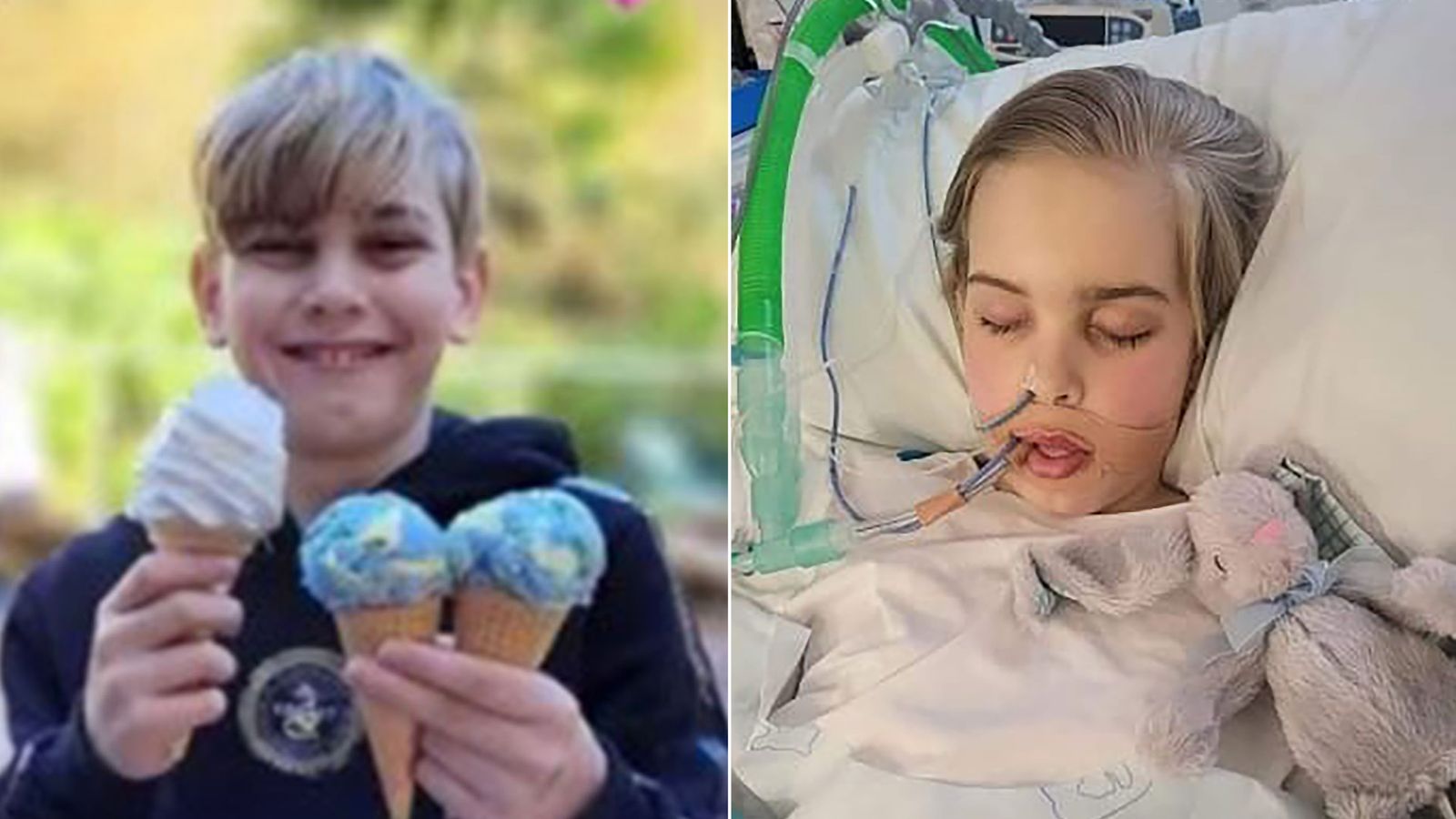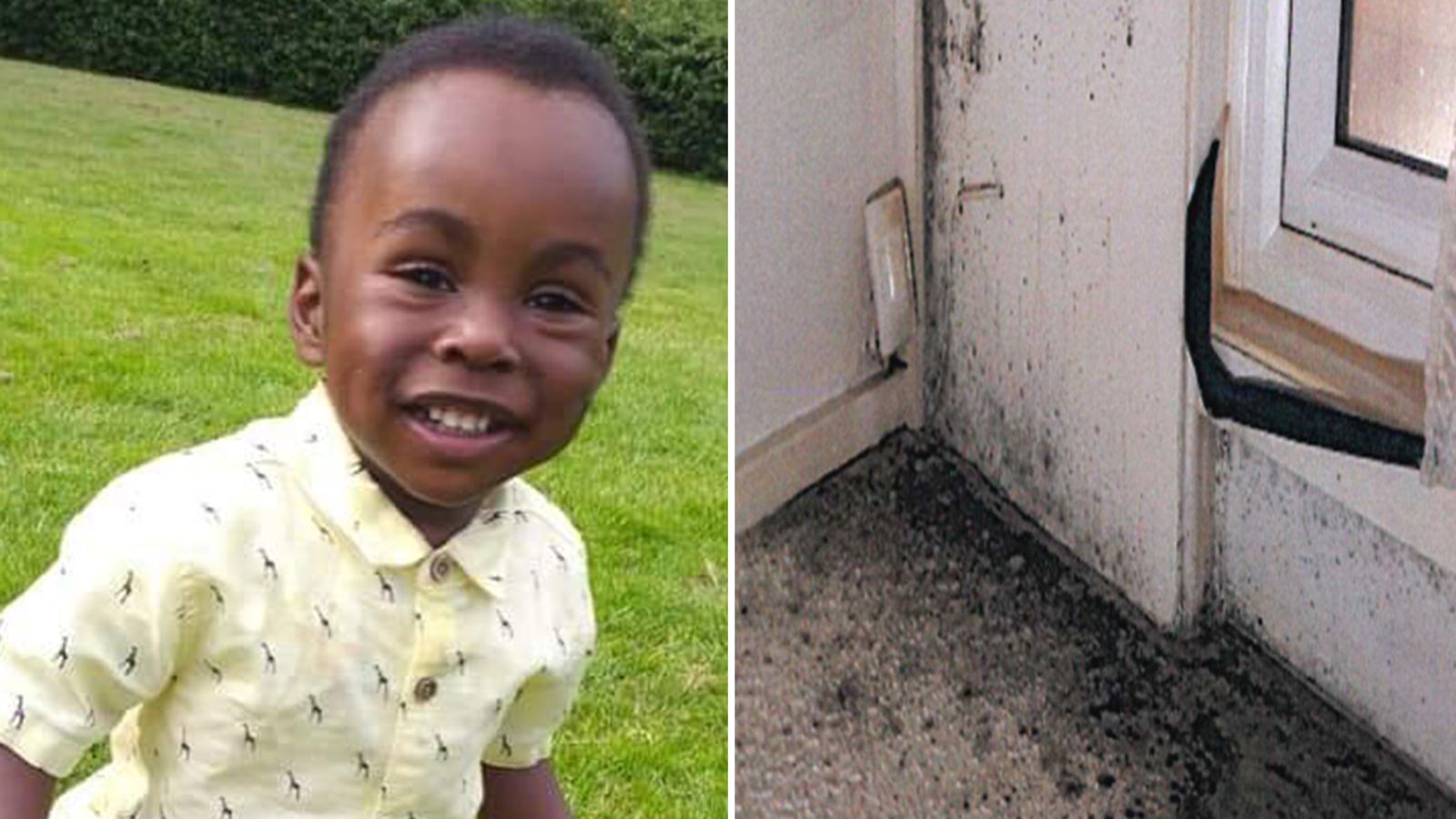Archie Battersbee, who suffered “devastating” brain damage, has died after his life support was turned off.
His mother Hollie Dance stood outside the hospital and said she was “the proudest mum in the world”.
She said Archie was “such a beautiful little boy and he fought right until the very end, and I am so proud to be his mum”.
“He was taken off medication at 10am, his stats remained stable until two hours later when they removed the ventilation,” said Ella Rose Carter, speaking on behalf of the family.
“There was nothing dignified about watching a family member or child suffocate.
“We hope no family has to go through what we went through. It’s barbaric.”
The 12-year-old had been at the centre of a lengthy legal dispute after he was seriously injured in an incident at his home in Southend, Essex, in April.
Archie Battersbee’s life support was due to be withdrawn at 10am after all legal options exhausted
Archie Battersbee cannot be moved to hospice to die, High Court rules
Archie Battersbee’s life support to continue as family launch bid to move him to hospice
He had been in a coma since then and had not regained consciousness. He was kept alive by a combination of medical interventions, including ventilation and drug treatments.
Doctors treating Archie at the Royal London Hospital in Whitechapel, east London, believed he was brain-stem dead and said continued life support was not in his best interests.
They argued the treatment should end and the youngster should be disconnected from a ventilator.
But his parents, Hollie Dance and Paul Battersbee, wanted the treatment to continue, saying earlier this year that the youngster’s heart was still beating and he had gripped his mother’s hand.
On Friday, they lost a High Court bid to have him transferred to a hospice before his life-sustaining treatment was withdrawn.
A long-running legal battle over the withdrawal of his treatment, ultimately failed on Wednesday when the European Court of Human Rights refused to intervene.
It followed hearings at the Court of Appeal and the Supreme Court, the UK’s highest court.
The family also claimed stopping treatment would be in breach of the UK’s obligations under Articles 10 and 12 of the UN Convention on the Rights of People with Disabilities, and Article 6 of the UN Convention on the Rights of Children.
These international obligations say states must take all necessary measures to ensure disabled people enjoy equal rights and that governments should do all they can to prevent the deaths of children and young people.
However, appeal court judges said the UN convention which the request for postponement was based on was “not part of the law of the United Kingdom”.
The High Court had previously ruled Archie’s treatment should come to an end because doctors said he was “brain-stem dead”.
Judges said the “irreversible cessation of brain stem function” had been “conclusively established” on 31 May and Archie was therefore dead.
The Court of Appeal upheld that decision and the Supreme Court refused to give the family more time to carry on their fight.





